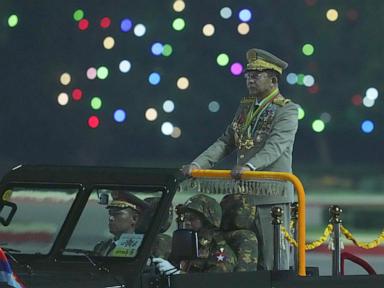Myanmar’s military government has officially terminated the state of emergency it imposed over four years ago, a move that signals a significant restructuring of its administrative framework as the nation purportedly gears up for upcoming elections later this year. This pivotal decision alters the landscape of Myanmar politics, raising questions about the future of Southeast Asia stability and the military’s long-term hold on power.
The emergency declaration, first enacted after the military coup and the ousting of the democratically elected government in February 2021, concentrated legislative, judicial, and executive authority in the hands of General Min Aung Hlaing. This period of emergency rule was marked by widespread suppression of dissent and a significant erosion of civil liberties, profoundly impacting the nation’s fabric.
However, the path to these proposed polls in December remains fraught with considerable obstacles, primarily an escalating civil conflict engulfing much of the country and resolute vows from the opposition to derail an electoral process they deem inherently unfair. The legitimacy of these upcoming elections is a central point of contention, with many viewing them as a calculated attempt to legitimize the military’s continued rule.
Despite relinquishing his roles as chief of the now-dissolved State Administration Council and prime minister, General Min Aung Hlaing is set to wield even greater influence by assuming the position of acting president, a strategic maneuver that keeps him firmly at the apex of power within Myanmar politics. This reshuffle underscores the military’s intent to maintain control despite the lifting of the state of emergency.
According to military spokesperson Major General Zaw Min Tun, the lifting of the state of emergency is directly intended to facilitate the election process, marking a formal dissolution of previous administrative bodies and a transfer of governmental functions to the newly empowered National Defense and Security Council. This official narrative aims to present a facade of normalcy and progress towards democratic processes.
Further solidifying his control, state media reported the formation of the State Security and Peace Commission under the National Defense and Security Council, with General Min Aung Hlaing at its helm, providing him with yet another critical lever of authority within the government. This new entity reinforces the centralized power structure established post-military coup.
Critics and human rights Myanmar organizations, citing thousands of deaths and arrests since the coup, widely dismiss the impending elections as a mere facade designed to legitimize ongoing military rule, highlighting a severe lack of free media and the imprisonment of key opposition figures. The international community largely shares these concerns regarding the credibility of the upcoming elections.
The National Unity Government, a prominent opposition alliance, alongside powerful ethnic armed groups, has explicitly pledged to obstruct the elections, reflecting broad skepticism regarding the military’s true intentions and the prospects for genuine democratic reform in the nation. The ongoing conflict poses a direct threat to Southeast Asia stability, underscoring the deep divisions within the country.






Leave a Reply